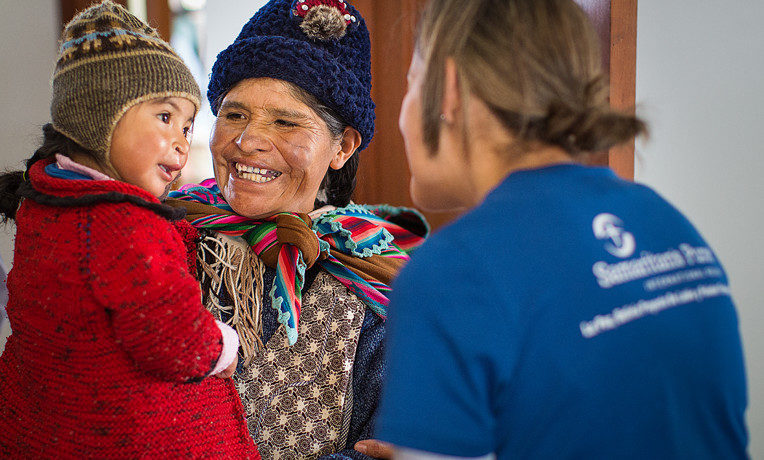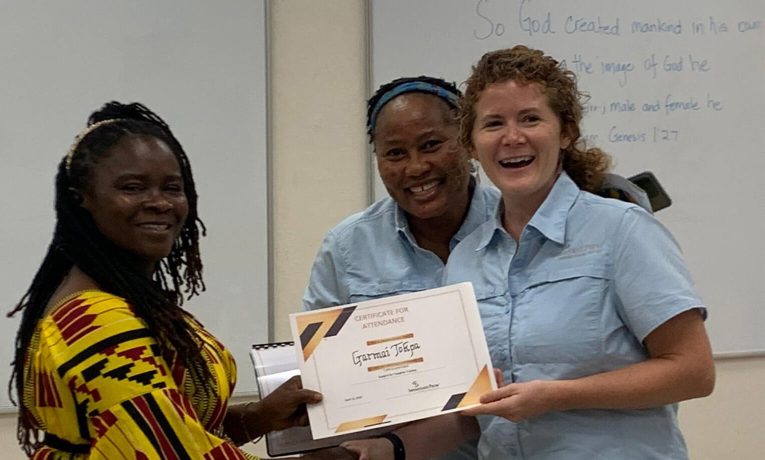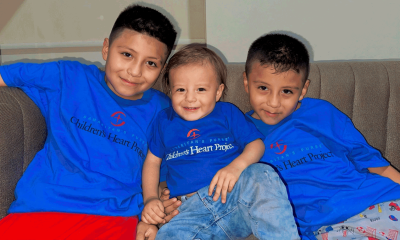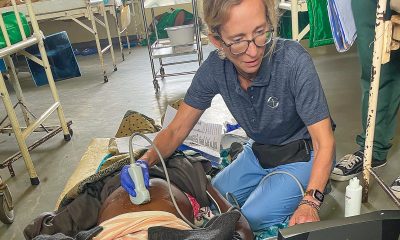Children born with a cleft lip or palate in this West African nation now have better chances of survival as Samaritan’s Purse trains medical professionals to reject local stigmas.
Samaritan’s Purse medical teams have performed hundreds of life-changing cleft lip and palate surgeries in Liberia. Sadly, though, some Liberian children born with this condition never have the opportunity to receive such medical treatment. Sometimes their lives are snuffed out at birth or shortly thereafter by family members or midwives just because of the severe stigma attached to this condition.
Samaritan’s Purse is training medical professionals at the Liberian Ministry of Health who, in turn, are training rural clinicians around the country how to preserve life. Using skits, role play, and other techniques—accessible even to those who may not be able to read and write—our staff members are working to shift the worldview of midwives and others who are the frontlines of this crisis.
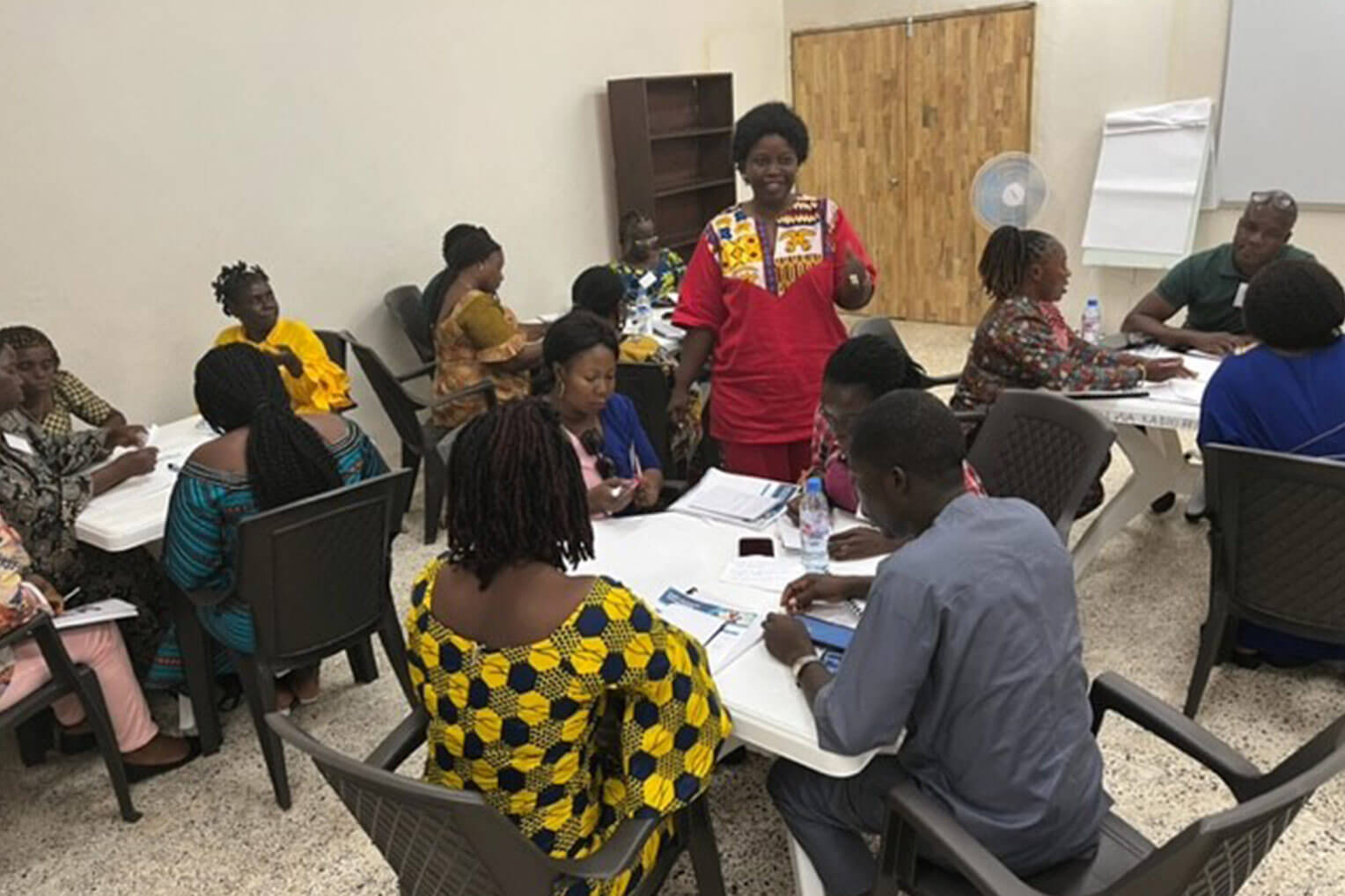
A Liberian Ministry of Health master trainer equips others who will, in turn, train clinicians around the country.
Children Are Dying
“People are killing these babies,” says Alicia Sperry, Samaritan’s Purse cleft lip and cataract program manager. That’s how strong stigmas against people with cleft lip and palate are in this West African nation.
Liberians traditionally call those with this facial deformity a witch, devil child, or porcupine (referencing that animal’s unusual teeth). They believe that mothers who bear these children ate porcupine meat while they were pregnant or took a bath at night—superstitions with no scientific basis.
Yassah Darwulo, a community health worker and the cleft lip coordinator for Samaritan’s Purse in Liberia, often follows up with families when she learns they have a child with the condition. On a number of occasions she has called families the day after a birth, only to discover the aunt took the child out into the bush and gave it caustics or acid to drink, which killed the infant.
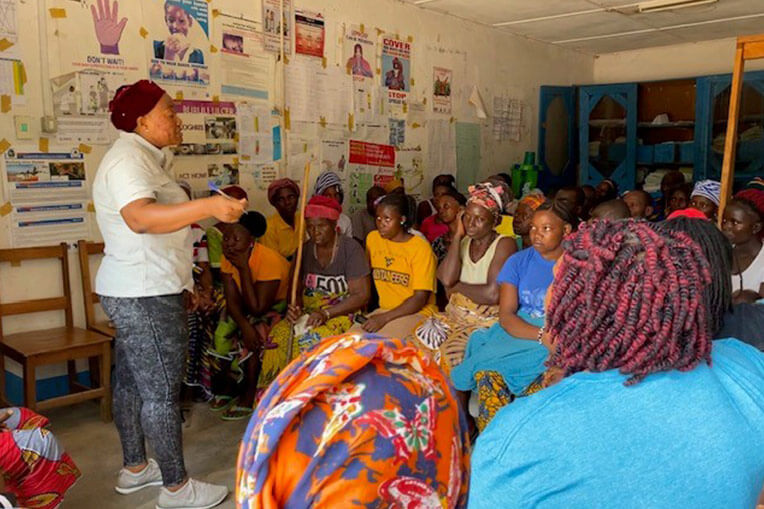
Yassah Darwulo trains midwives and other health professionals in Lofa County in order to help overcome local stigmas.
Other times, there is family pressure associated with the birth of a cleft lip child. Husbands often leave, telling their wives, “This obviously isn’t my child because I wouldn’t have a child born with something like that.”
Sperry, who is also a registered nurse and master of public health, lived in Liberia for several months last year and traveled out to rural clinics to talk midwives. She would show them a picture of a child with a cleft lip and ask, “Have you ever delivered a baby like this?” Oftentimes the response would be, “Yeah, I worked so hard, so many hours, and this is what the baby looks like?!”
Sperry noted that it’s hard when these misconceptions are coming from healthcare providers. But now is also an opportune time to change perspectives and help save lives. Many Liberians are just beginning to get into the practice of coming to a clinic for birth instead of having their baby at home, so it’s both urgent and critical to train midwives and other frontline workers in appropriate responses.
Samaritan’s Purse Offers Training That Will Save Lives
The training Samaritan’s Purse is partnering with the Ministry of Health to provide has two main components: addressing stigma and feeding techniques.
Using handmade dolls that have a split lip, Samaritan’s Purse trainers lead medical personnel through several rounds of skits and role plays. Their first time through, the participants mention all the traditional Liberian ideas about a child with a facial deformity. After discussion, they repeat the exercise, instead speaking more encouraging words over the child. Acting out this change provides healthcare workers with more positive responses that will encourage mothers.
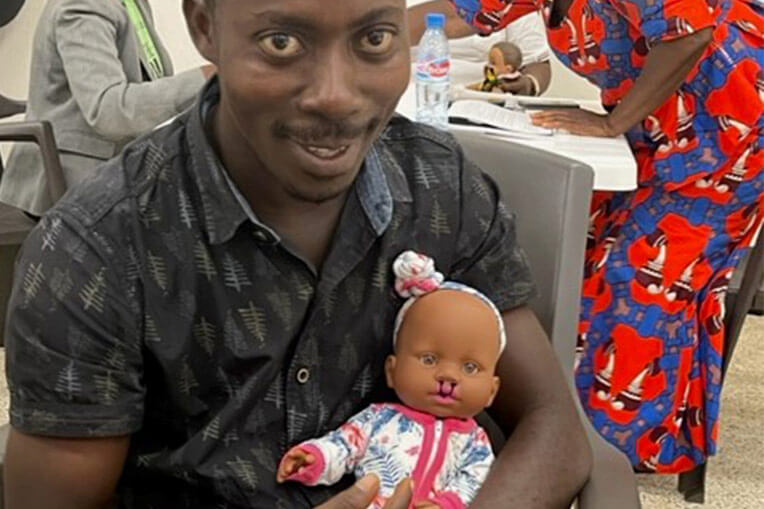
When conducting role plays about potential responses to cleft lip and palate, participants utilize handmade dolls with a facial deformity.
The training also covers feeding techniques, because if children with cleft lip are spared at birth, they often suffer from malnutrition in subsequent years. Their condition makes it difficult for the child to latch on to breastfeeding, with their sucking just filling their stomachs with air instead of nourishment.
Trainers teach the medical professionals that it is important for cleft lip babies to be fed in an upright position. Without this extra precaution, the mother’s milk can go down their nose or into their lungs. In addition, it is important for these babies to be burped every five to 10 minutes during the feeding process, instead of just halfway through as a normal child would need.
Medical Professionals Gladly Spread the Message
Once Ministry of Health professionals are equipped in the trainings, they go to great lengths to bring the material to outlying villages. Sometimes traveling six hours by four-wheel drive vehicle, then by boat across a river, and again for two more hours by motorcycle, they reach villages where residents retrieve water by bucket from a well and live with very little electricity. Here, they gather midwives, community healthcare workers, vaccine workers, and even pastors under a big tree or an open-air concrete structure to repeat the training they received.
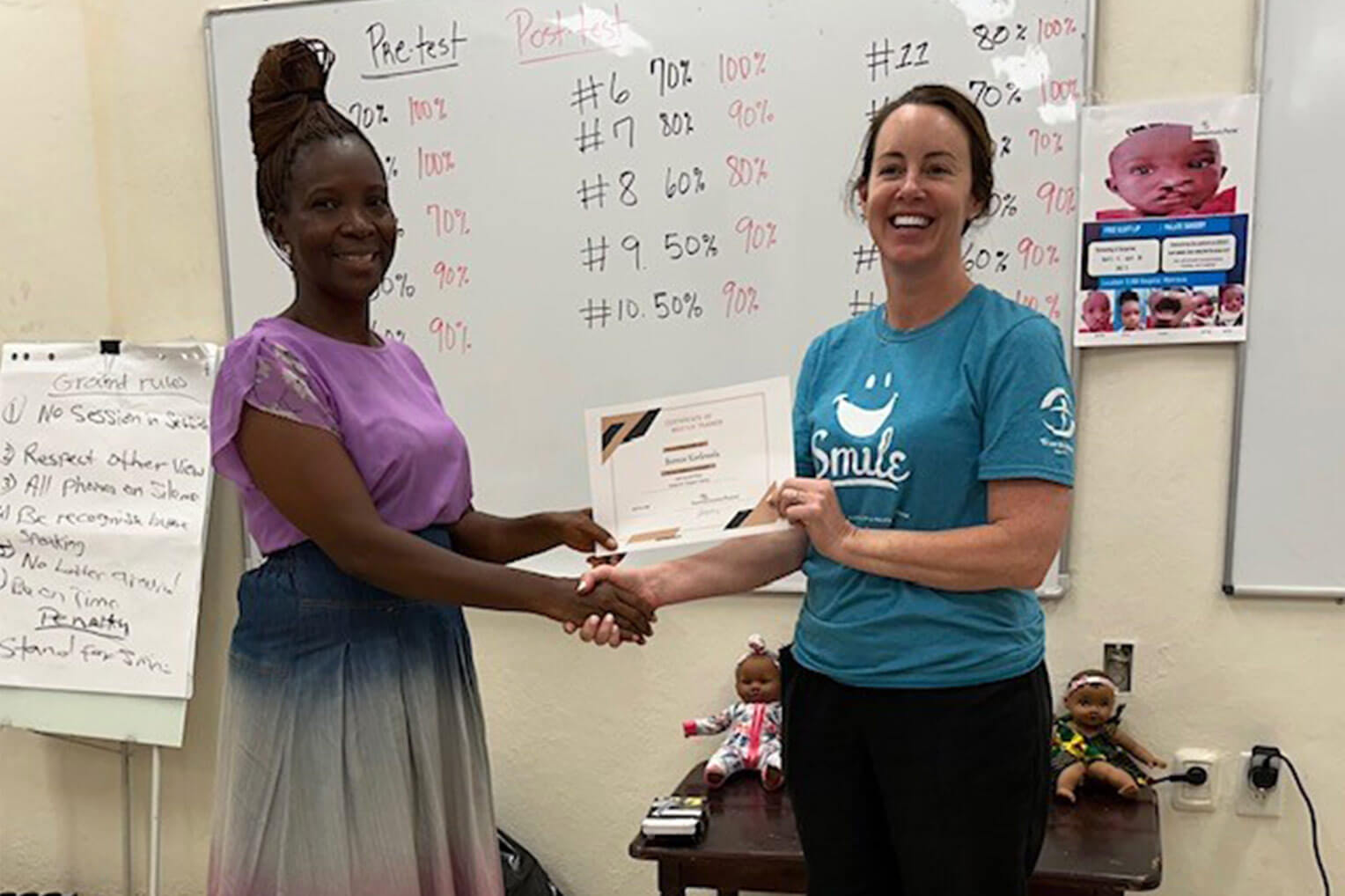
More than 30 trainers have been equipped by Samaritan’s Purse to teach others, especially those at rural clinics around Liberia.
In many cases, this new teaching is being well received and paving the way for a new generation of cleft lip babies to survive.
“One of the moms said, ‘If my husband stands against all these stigmas, it doesn’t matter what these other people are saying,’” Sperry said.
So far in 2023, 18 Ministry of Health workers in Bong and Gbarpolu Counties have been trained, in addition to the 15 instructed in Lofa and Grand Bassa Counties in 2022. Each of these medical professionals are taking the material they have gleaned to anywhere from two to five additional clinics.
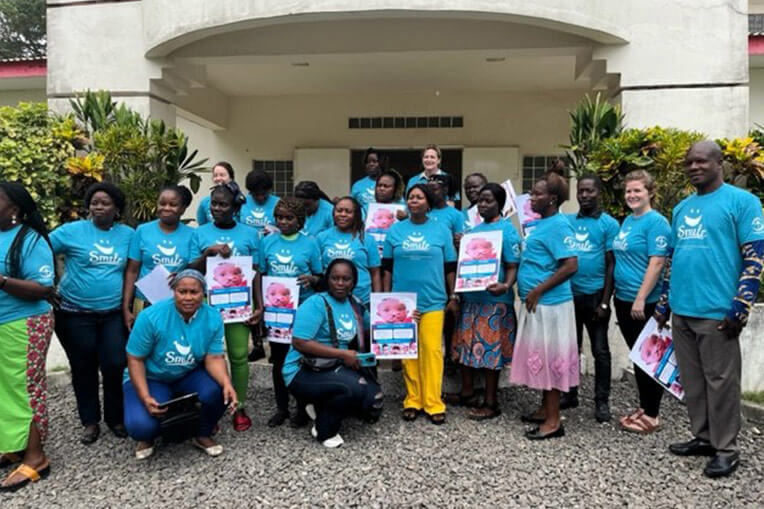
Participants from Gbarpolu and Bong Counties were equipped to train others during their April 2023 training.
Sperry called the rollout of this training last year “a great success.” She was pleased to see the Liberians take ownership of the material as they understand best who would benefit from the information and be able to work for change in their communities.
To further help cleft lip babies and their families in Liberia, Samaritan’s Purse also recently held a three-day lecture training for local surgeons. This begins a three- to five-year process of equipping local doctors to perform cleft lip and palate surgeries, which up until this point, have been performed largely by expatriate physicians.
Please pray that these trainings would continue to shape the understanding of Liberians and that more babies with cleft lip and palate would be spared.
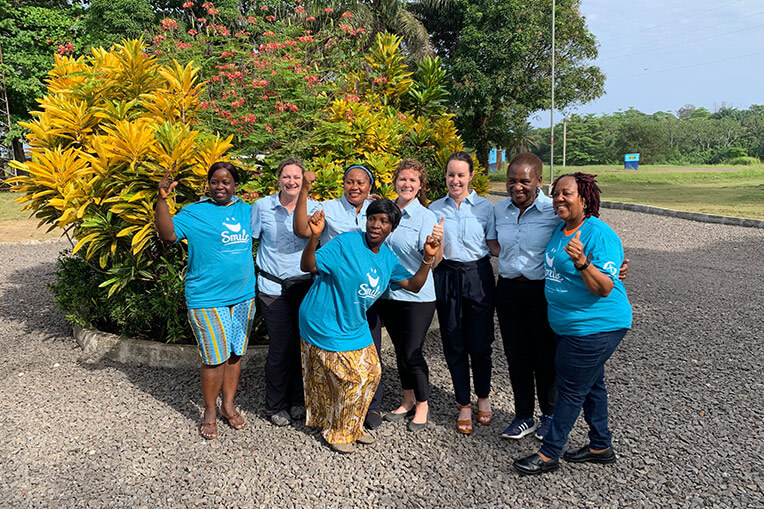
During the April 2022 rollout, three Liberian Ministry of Health master trainers (in teal) pause for a photo together with the Samaritan’s Purse training team (left to right in light blue): Bethany Densham, Yassah Darwulo, Alicia Sperry, Emily Greywoode, and Rose Kipchumba.
